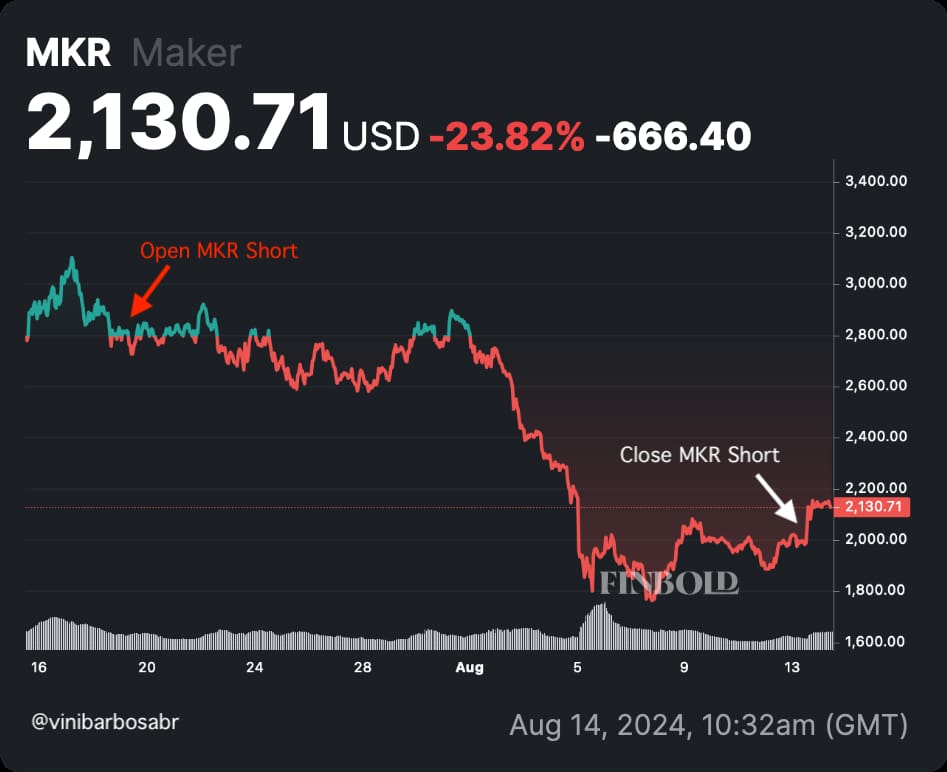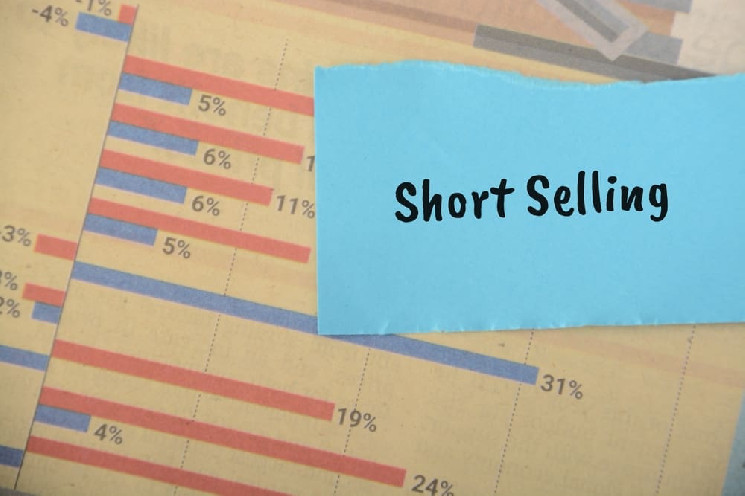A cryptocurrency short-seller has made nearly $300,000 in profit with a trade that lasted less than one month. The crypto trader opened this short position using an advanced decentralized finance (DeFi) strategy of borrowing, selling, buying, and repaying.
The address ‘0x1772dbc5529151c8190404b4d2c25f9f5d5eb3ef’ used Aave (AAVE) to carry on a trade against MakerDAO (MKR) from July 19 to August 13. According to a post by Lookonchain on X, the short-selling operation rendered $292,400 profit in Circle’s USD stablecoin (USDC).
As reported, the trader borrowed 500 MKR and sold it for $1.37 million USDC at $2,740 per token. Then, closing the short by buying back the 500 MKR plus one-month interest with $1.07 million, repaying the loan.
MKR is currently trading at $2,130, recovering from August’s crash in a short-term uptrend.

Opening longs and short positions by borrowing crypto in DeFi
DeFi traders can leverage their holdings as collateral to borrow cryptocurrencies or stablecoins to sell or buy a pair, effectively opening shorts or longs without needing to rely on a centralized exchange or gameable contracts.
Interestingly, investors can provide liquidity to these lending protocols to receive a yield over their holdings. Usually, the yield is paid in the form of loan interest or operational fees, creating a self-sustaining ecosystem.
Cryptocurrency traders leveraging their operations through margin – borrowing an asset against collateral – can speculate without decapitalizing from their main position.
Nevertheless, short-selling cryptocurrencies using this method requires proper knowledge, as the operation has significant risks. First, the shorted asset’s price can continue to increase and never fall below the trader’s breakeven point, accruing losses.
Moreover, holding the position for too long will worsen the loan’s health as the interest accumulates, increasing the repaying amount against the provided collateral – which can liquidate the position, bringing even further losses.
As always, trading in such a volatile landscape has risks, and investors must perform proper risk management while speculating.
Disclaimer: The content on this site should not be considered investment advice. Investing is speculative. When investing, your capital is at risk.
 finbold.com
finbold.com
